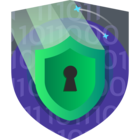I sort of understand backup and recovery...but if you have data, you have data, no? What were the reasons you use a backup or recovery service? I don’t understand what problems it might solve
Question
Why take a backup or recovery service?
Enter your E-mail address. We'll send you an e-mail with instructions to reset your password.





